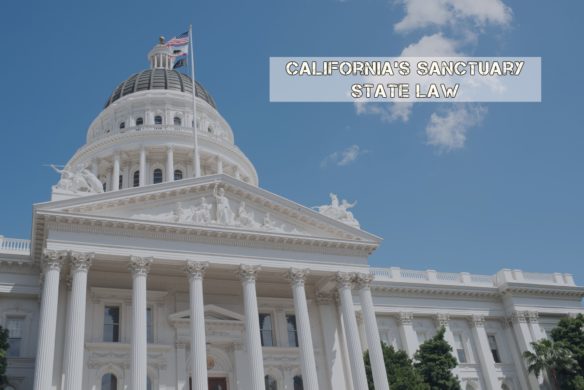
You’ve probably already heard that Gov. Jerry Brown signed landmark sanctuary state legislation into law recently, set to go into effect on January 1, 2018. California is home to an estimated 2.3 million unauthorized immigrants. Senate Bill 54 protects immigrants without legal residency in the U.S. How? By restricting when local law enforcement can help federal agents enforce immigration laws. Research has shown sanctuary cities have lower crime rates and that immigrants generally commit fewer crimes than U.S. citizens.
According to the California Employment Law Report, employers must understand these five key aspects of sanctuary state legislation:
- Employers do not have to voluntary allow an immigration enforcement agent to enter any nonpublic areas of “a place of labor” without a subpoena or judicial warrant.
The bill essentially keeps local officials from asking people about their immigration status during “routine interactions” and limits their work with federal immigration agents.
- Employees must be given notice whenever Immigration officials want to review employment records.
Any inspections of I-9 Employment Eligibility Verification forms or other employment records conducted by an immigration agency must be posted in the language the employer normally uses to communicate within 72 hours of receiving a notice of the inspection. The notice must include:
- The name of the immigration agency conducting the inspections of I-9 Employment Eligibility Verification forms or other employment records.
- The date that the employer received notice of the inspection.
- The nature of the inspection to the extent known.
- A copy of the Notice of Inspection of I-9 Employment Eligibility Verification forms for the inspection to be conducted.
In addition, The Labor Commissioner is required to publish a template for employers to use by July 1, 2018.
- An employer is required to provide an affected employee with a copy of the Notice of Inspection of the I-9 Employment Eligibility Verification form.
An affected employee is an employee identified by the immigration agency inspection. The employer is required to provide the affected employee with a copy of the written immigration agency notice within 72 hours. If hand delivery is not possible, by mail or email, will suffice.
- Employers cannot reverify the employment eligibility of a current employee in a manner that’s not required by federal law.
Violations of this provision can result in civil penalties up to $10,000.
- Potential penalties.
Penalties for failure to provide the notices required under the new law are between $2,000 and $5,000 for a first violation, $5,000 up to $10,000 for each subsequent violation. The penalties will be recovered by the Labor Commissioner.
If you’d like to learn more about the landmark sanctuary state legislation, please contact the experts at RTR Consulting. For more than 20 years, we’ve been helping small to medium-sized businesses manage their most precious resource through a full range of HR services – at a fraction of the cost of an in-house department, too!